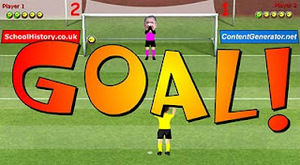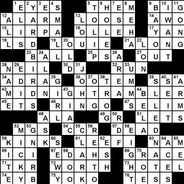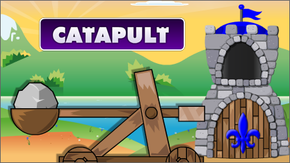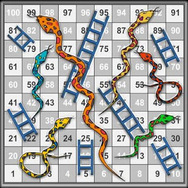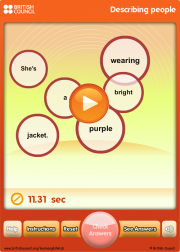Review Vocabulary Unit 1,2, 3
Unit 3 - British English vs. American English
Unit 3 Vocabulary
Unit 3 - Vocabulary
Modals by Alexander James Mckean on Scribd
Unit 2 Vocabulary
Unit 1
Used to and Would by Alexander James Mckean on Scribd
Introduction Unit
THE FUTURE TENSES
Use the presentation here to review the different future tenses over the Christmas break. Then try this exercise. After, check out the song 500 Miles by The Proclaimers and fill in the blanks. How many examples of future tenses can you find?
PRESENT SIMPLE AND PRESENT CONTINUOUS
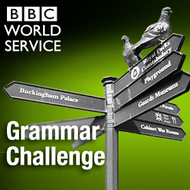
Check out the British Council's pages to get an in depth explanation of the differences between the present simple and the present continuous. Then listen to Bilal from Syria tell you a bit about what he's doing right now for the BBC's Grammar Challenge. At the bottom of the page, there's a link that will take you to their quizzes so you can challenge yourself!
PRESENT PERFECT SIMPLE VS PRESENT PERFECT CONTINUOUS
PRESENT PERFECT SIMPLE AND CONTINUOUS
THE PAST TENSES
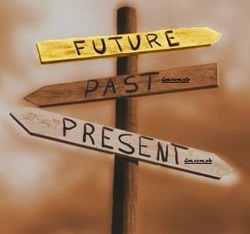
Do you feel confident about English past tenses? Try out the exercises below to find out.
Exercise on Past Simple and Past Perfect Simple
Exercise on Past Perfect Simple and Past Perfect Continuous
Exercise on Past Simple, Past Continuous and Present Perfect
If you have not been very successful or if you prefer to check the theory first, watch the following video. You may find it a bit lengthy, nevertheless I think the grammar is very well explained.
Exercise on Past Simple and Past Perfect Simple
Exercise on Past Perfect Simple and Past Perfect Continuous
Exercise on Past Simple, Past Continuous and Present Perfect
If you have not been very successful or if you prefer to check the theory first, watch the following video. You may find it a bit lengthy, nevertheless I think the grammar is very well explained.
PAST TENSE GAMES
UNIT 1
| used_to_and_would.pptx | |
| File Size: | 51 kb |
| File Type: | pptx |
USED TO AND WOULD
UNIT 2
COMPARISON
GERUNDS AND INFINITIVES
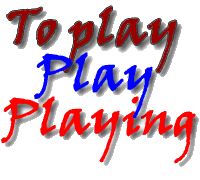
Learning how to use gerunds and infinitives is one of the most challenging aspects of learning English. This website offers you a lot of interactive exercises on gerunds and infinitives.
For more practice visit this page. You will see more exercise when you click on "next" at the bottom of the page.
For more practice visit this page. You will see more exercise when you click on "next" at the bottom of the page.
INFINITIVES AND -ING FORMS
| gerunds-and-infinitives-chart.pdf | |
| File Size: | 272 kb |
| File Type: | |
UNIT 3
MODAL VERBS
CAN, COULD and BE ABLE TO
We use can to say that something is possible or allowed, or that somebody has the ability to do something. The negative is can't (cannot).
Can you speak foreign languages?
I'm afraid I can't come to the party on Friday.
We can say that somebody is able to do something, but can is more usual. But can has only two forms: can (present) and could (past). So sometimes it is necessary to use be able to.
I haven't been able to sleep recently.
COULD (DO) and COULD HAVE (DONE)
We use could in a number of ways. Sometimes could is the past of can. We also use could to talk about possible actions now or in the future (especially to make suggestions).
What shall we do this evening? - We could go to the cinema.
We also use could to say that something is possible now or in the future. We use could have (done) to talk about the past.
The situation is bad, but it could be worse. (now)
The situation was bad, but it could have been worse. (past)
MUST and CAN'T
You can use must to say that you believe something is certain.
You have been travelling all day. You must be tired.
You use can't to say that you believe something is not possible.
You've just had lunch. You can't be hungry already.
For the past we use must have (done) and can't have (done).
I didn't hear the phone. I must have been asleep.
Sue hasn't contacted me. She can't have got my message. (it is also possible to say "she couldn't have got")
MAY and MIGHT
We use may and might to say that something is a possibility. The negative forms are may not and might not (mightn't).
It may be true. OR It might be true. (= perhaps it is true)
For the past we use may have (done) or might have (done).
I can't find my bag anywhere. You might have left it in the shop. (= perhaps you left it in the shop)
HAVE TO and MUST
I have to do something = it is necessary to do it, I am obliged to do it.
I have to wear glasses for reading.
We use do/does/did in questions and negative sentences (for the present and past simple).
Why did you have to leave early?
Must is similar to have to.
It's later than I thought. I must go. OR I have to go.
You can use must to give your own opinion (for example, to say what you think is necessary, or to recommend someone to do something). Have to is also possible.
You cannot use must to talk about the past.
MUSTN'T and DON'T HAVE TO
Mustn't and don't have to are completely different.
You mustn't do something = it is necessary that you do not do it (so don't do it)
You must keep it a secret. You mustn't tell anyone. (= don't tell anyone)
You don't have to do something = you don't need to do it (but you can if you want)
I don't have to be at the meeting but I think I'll go anyway.
You can also say needn't or don't need to.
We don't have to hurry. OR We needn't hurry. OR We don't need to hurry.
SHOULD and SHOULD HAVE (DONE)
You should do something = it is a good thing to do or the right thing to do. You can use should to give advice or to give opinion. The negative form is should not (shouldn't).
You look tired. You should go to bed.
You should have done something = you didn't do it, but it would have been the right thing to do.
You missed a great party last night. You should have come. Why didn't you?
You can use ought to instead of should.
We use can to say that something is possible or allowed, or that somebody has the ability to do something. The negative is can't (cannot).
Can you speak foreign languages?
I'm afraid I can't come to the party on Friday.
We can say that somebody is able to do something, but can is more usual. But can has only two forms: can (present) and could (past). So sometimes it is necessary to use be able to.
I haven't been able to sleep recently.
COULD (DO) and COULD HAVE (DONE)
We use could in a number of ways. Sometimes could is the past of can. We also use could to talk about possible actions now or in the future (especially to make suggestions).
What shall we do this evening? - We could go to the cinema.
We also use could to say that something is possible now or in the future. We use could have (done) to talk about the past.
The situation is bad, but it could be worse. (now)
The situation was bad, but it could have been worse. (past)
MUST and CAN'T
You can use must to say that you believe something is certain.
You have been travelling all day. You must be tired.
You use can't to say that you believe something is not possible.
You've just had lunch. You can't be hungry already.
For the past we use must have (done) and can't have (done).
I didn't hear the phone. I must have been asleep.
Sue hasn't contacted me. She can't have got my message. (it is also possible to say "she couldn't have got")
MAY and MIGHT
We use may and might to say that something is a possibility. The negative forms are may not and might not (mightn't).
It may be true. OR It might be true. (= perhaps it is true)
For the past we use may have (done) or might have (done).
I can't find my bag anywhere. You might have left it in the shop. (= perhaps you left it in the shop)
HAVE TO and MUST
I have to do something = it is necessary to do it, I am obliged to do it.
I have to wear glasses for reading.
We use do/does/did in questions and negative sentences (for the present and past simple).
Why did you have to leave early?
Must is similar to have to.
It's later than I thought. I must go. OR I have to go.
You can use must to give your own opinion (for example, to say what you think is necessary, or to recommend someone to do something). Have to is also possible.
You cannot use must to talk about the past.
MUSTN'T and DON'T HAVE TO
Mustn't and don't have to are completely different.
You mustn't do something = it is necessary that you do not do it (so don't do it)
You must keep it a secret. You mustn't tell anyone. (= don't tell anyone)
You don't have to do something = you don't need to do it (but you can if you want)
I don't have to be at the meeting but I think I'll go anyway.
You can also say needn't or don't need to.
We don't have to hurry. OR We needn't hurry. OR We don't need to hurry.
SHOULD and SHOULD HAVE (DONE)
You should do something = it is a good thing to do or the right thing to do. You can use should to give advice or to give opinion. The negative form is should not (shouldn't).
You look tired. You should go to bed.
You should have done something = you didn't do it, but it would have been the right thing to do.
You missed a great party last night. You should have come. Why didn't you?
You can use ought to instead of should.
EXERCISES
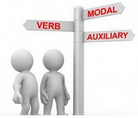
MODAL GAMES
PROBABILITY
GAME
AN OUTLINE
Both tenses are used to express that an action began in the past and is still going on or has just finished. In some cases, both forms are correct, but there is often a difference in meaning: We use the Present Perfect Simple mainly to express that an action is completed or to emphasize the result. We use the Present Perfect Continuous to emphasize the duration or continuous course of an action.
PRESENT PERFECT SIMPLE (have/has + past participle)
Result (what / how much / how often)
I have written 5 e-mails.
I have been to London twice.
Emphasis on completion
I have done my homework. (Meaning: My homework is completed now.)
PRESENT PERFECT CONTINUOUS (have/has been + ...ing)
Duration (how long)
I have been studying for an hour.
Emphasis on duration
I have been doing my homework. (Meaning: That's how I have spent my time. It does not matter whether the homework is completed now.)
Do you understand the difference now? Try the following exercises to check it. Not so sure? Watch the following video and then try the exercises. Good luck!
PRESENT PERFECT SIMPLE (have/has + past participle)
Result (what / how much / how often)
I have written 5 e-mails.
I have been to London twice.
Emphasis on completion
I have done my homework. (Meaning: My homework is completed now.)
PRESENT PERFECT CONTINUOUS (have/has been + ...ing)
Duration (how long)
I have been studying for an hour.
Emphasis on duration
I have been doing my homework. (Meaning: That's how I have spent my time. It does not matter whether the homework is completed now.)
Do you understand the difference now? Try the following exercises to check it. Not so sure? Watch the following video and then try the exercises. Good luck!

